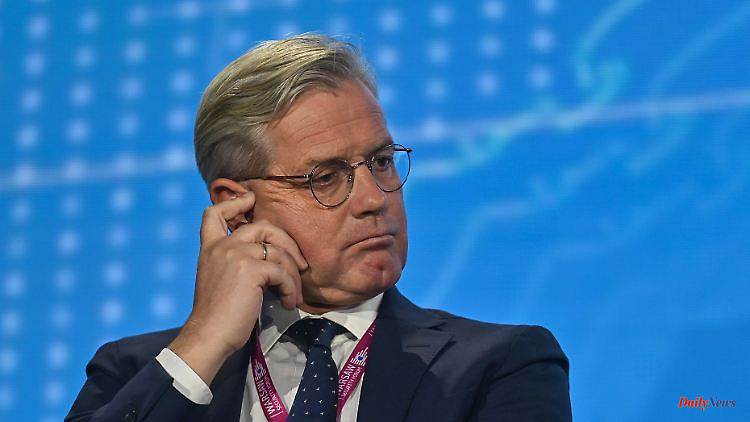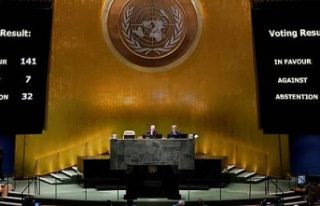The Russian war of aggression in Ukraine has been raging for a year. In the ZDF talk show "Markus Lanz" on Thursday evening, the guests take stock of the war. At the same time they are dealing with a possible Chinese peace initiative.
It is the morning of February 24, 2022. The Russian army begins occupying Ukraine on the orders of Russian President Putin. He is responsible for a war in which up to 400,000 people have been killed on both sides and millions of people have lost their homes.
In the ZDF talk show "Markus Lanz" the guests take stock on Thursday evening. It was clear to him that the Ukrainians would defend their country, says CDU foreign policy officer Norbert Röttgen. "It was clear to me that the individuals would die to save their country," he says. However, he underestimated the Ukrainian army, just like Vladimir Putin. "He was grossly mistaken in assessing Ukrainian military resolve and underestimated us."
Above all, the Russian army was misjudged, adds Eastern Europe expert Margarete Klein. Then it was recognized that much of the Russian modernization program in the army had not been implemented. "We're seeing a return to the concept of mass," she explains. The Russian army is waging a battle "in which people are sent forward in human waves as cannon fodder in order to gain very small amounts of ground."
These are not only regular troops, but above all Wagner mercenaries who were recruited from prisons and sent forward by force. "We are experiencing very brutal warfare, which is also directed against the civilian population," said Klein. Extreme brutality also prevails within the Russian army. Klein speaks of "grandfathers' rule, in which the older recruits or the officers torment, mistreat, and beat the younger ones to death." This army is a reflection of Russian society, which tolerates certain forms of violence that the state also regards as completely normal. Violence against women is no longer a criminal offense in Russia, except when those affected have to go to the hospital.
Of course, the guests at Markus Lanz also discuss what a possible end to the conflict could look like. Chinese President Xi Jinping has announced a peace initiative. A few hours ago, Xi called on Russia and Ukraine to sign a ceasefire. Previously, the Ukrainian President Selenskyj had shown himself open to such negotiations. However, he must first find out more about the initiative.
Even China expert Adrian Geiger does not know the Chinese initiative when the talk show is recorded in the early evening. Nevertheless, he suspects what China will propose: "ceasefire, negotiations that take the security concerns of everyone involved seriously. For Russia, this means that Ukraine will not join NATO and does not have close ties with the West. It also means: no arms deliveries to the Ukraine and no more sanctions against Russia." The Chinese peace initiative will have an impact on politics in Germany, but above all in southern countries such as China, Brazil or South Africa, which have not yet participated in the sanctions against Russia.
Internationally, China's proposals are awaited with skepticism. In the Markus Lanz program, CDU politician Röttgen is almost horrified: "I'm annoyed that the Chinese are already associated with success with the term. The Chinese have managed that it's already the peace plan everywhere. But that has nothing to do with peace."
Röttgen criticizes the fact that the highest Chinese foreign politician, Wang Yi, emphasized the strategic friendship between China and Russia in Moscow. "That's the opposite of peace, that's taking sides politically." China wants to use the initiative to polish its own reputation. In addition, China wants to swap the preconditions for peace negotiations and only talk about a war waged by two countries. It should not be mentioned that Russia attacked Ukraine.
But even if the guests at Lanz, like many experts and diplomats, reject the peace initiative, the West has agreed on one goal: Ultimately, Ukraine will determine when the war is over for them. In turn, it has very close economic ties with China.












